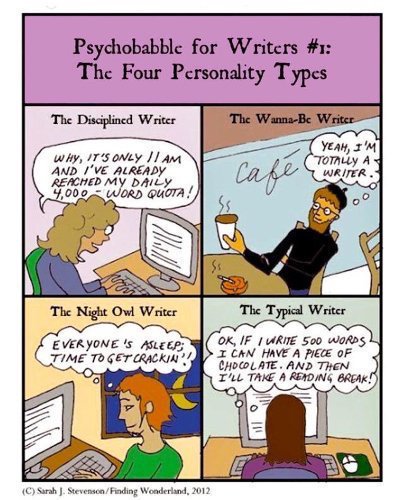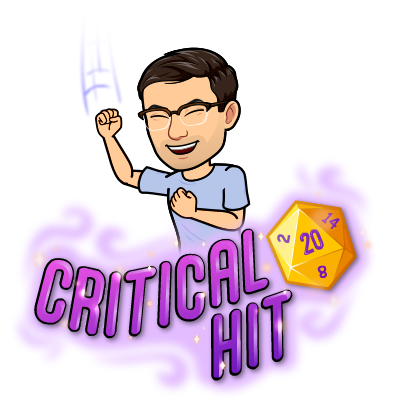So you have a writer in your life and it's time to get them a gift. Sure, they like much the same sort of things as anyone else, but you want something that appeals to their gift of writing, right?
The great news is that, outside of a computer, paper, and printer, and maybe some nice pens or journals, their material needs are pretty simple that way, and they probably already have those things. So what else can you do?
Whatever the occasion, the great news is that most of the things you can give them or do for them are free!
So here are the top 10 things that I think a writer wants most:
10. Buy their book or read whatever they wrote
Seems like a no-brainer, right? It doesn't matter if it's not your genre ("Sorry, but I'm just not into Old West scifi romances."), or you're put off by that double negative in the very first paragraph, or you don't like the scruffy nerfherder character that's introduced in the second chapter. For a writer, every time a page is turned it's an endorphin rush. (And nothing is more crushing to a writer than having their work ignored by the ones they love!). Yes, you may need to plunk down a little money to buy the book, but it's probably no more expensive than a fast food meal and tons more entertaining!
9. Compliment them
After you've read their work, thank them for sharing their work and tell them what parts were your favorites. See their faces light up as you remind them that their writing isn't total sh*t and they aren't an impostor. We can't all be Stephen King or Louisa May Alcott, but surely some scene in that book that took them years to write touched you in a way that made a lasting impression, right? This gift is free!
8. Leave a review
If they published a book and you read it, then by all means leave a review on their Amazon page (or wherever it is posted online) and on review sites like Goodreads. It only takes a few minutes to click five stars, write up a quick few lines about how the book was awesome, and click "publish". And, yeah, it's free. For a writer, seeing that someone has liked your writing enough to share it with the world is "better than medicine" (as my grandma used to say - and she
was a writer, too!).
7. Gift their book to someone
Yeah, that means you have to spend a little money. But you're buying a gift for someone anyway, right? Books are awesome gifts! And by doing this, you've gifted TWO people for the price of one (since the writer will get a small part of the price as a royalty, not to mention their eternal thanks for sharing their masterpiece!).
6. Ask them to sign their book
Doing a book signing for a writer is like putting a camera on an actor. It validates their worth as a writer and acknowledges they've done something valuable. Plus, this way we can pretend that in 50 years it will become a rare commodity after we've hit the big time!
5. Follow them on social media
Most writers who are serious about their craft will have a presence on social media. Chances are you are one of the one billion people who are on
Facebook, 330 million people on
Twitter, 800 million people on
Instagram, or 291 million on
Pinterest. Maybe even all of these. It only takes a moment to go to their pages and click "Follow" or "Like". One of the first things a potential agent does when considering whether to pick up the author is to look at the number of followers they have on these platforms. Click "share" or "heart" or "like" on their posts, too. And, yup, it's free and easy to just click that button!
4. Visit their blog and/or webpage
Most authors have an online presence with a webpage and/or a blog. It takes time and skill to make a webpage attractive and useful and to populate the page with information to help them sell their writing. Their blog, too, has articles and entries that they write -- another outlet for their writing -- that you can read and comment on. Simply visiting the page gives them a higher "visit" count that makes the page move up in the rankings. Oh, and if they have ads on their page, click them. It will earn them a few cents. None of this costs you anything, and you just may be entertained and informed by it.
3. Ask a bookstore to carry their book
If they are a published author, it can be difficult to get local bookstores to actually carry the book on their shelves, especially if the author is self-published or an indie author. Asking the bookstore manager or purchaser to please consider carrying it, because you're a fan, will get the author on their radar, and maybe they will actually sell the book in the bookstore because of it. It's worked for me! And other than a little bit of time to call or visit the bookstore, it's free to you!
2. Caffeine
Most of us writers have dayjobs, children, the usual stresses and chaos in our lives, like everyone else. Yet somehow we find the time and energy to write. I tend to write late at night. Some writers do it early in the morning. Or during the lunch break. But we're tired. Lordy, we're tired! We often give up sleep for this passion. So give us the gift of caffeine. Offer us a nice hot mug of coffee or tea. Maybe even splurge a little and get it from a good coffee shop, eh? Yeah, there's a little cost involved in this one, but unless you're importing the coffee direct from
Juan Valdez and his donkey, Conchita, then chances are you can afford it. Heck, throw in some chocolate while you're at it...
1. Time!
Speaking of that hectic life... with the dayjob, children, etc, there is precious little time left to sit down, clear the mind, and focus on typing away on our keyboards, lost in our strange little worlds, or staring off into space while imagining the plots of our stories, or holding conversations with our imaginary friends. And all too often that little bit of time is interrupted by the kid running in and wanting to play, or the spouse asking why the trash wasn't taken out yet, or the phone ringing. Trust me when I tell you it is
incredibly frustrating not to be able to write. Give the gift of time by allowing the writer in your life an hour or two (or more!) every day to focus, undisturbed, and create the next masterpiece. It costs nothing at all other than a little bit of patience and an understanding that you are still more important to them. Writing is art, and art requires focus and passion. They will be happier and more relaxed afterward, and their writing will be better quality, too!
And, um, do these things for me too, okay? ;)
Cheers and happy reading!



 Recently I published a fantasy short story entitled "Into the Ruined Lands," on Amazon. In the story, two teen girls go on an adventure in the dangerous volcanic Ruined Lands to find a healing herb, which will be given to the mysterious Old Mother Aya to make a healing potion and save the life of one of their younger sisters.
Recently I published a fantasy short story entitled "Into the Ruined Lands," on Amazon. In the story, two teen girls go on an adventure in the dangerous volcanic Ruined Lands to find a healing herb, which will be given to the mysterious Old Mother Aya to make a healing potion and save the life of one of their younger sisters. Are You Listening? by Tillie Walden
Are You Listening? by Tillie Walden Doctor Sleep by Stephen King
Doctor Sleep by Stephen King
 Diggum by Isaac Thorne
Diggum by Isaac Thorne
 The Starving by Jon Dobbin
The Starving by Jon Dobbin As Halloween nears, the Overwrite Podcast is featuring spooky stories, and they chose my Around the Corner from Sanity, which is available from Amazon in paperback or Kindle, HERE. story, "Rabbit Cry," from my recently-released collection,
As Halloween nears, the Overwrite Podcast is featuring spooky stories, and they chose my Around the Corner from Sanity, which is available from Amazon in paperback or Kindle, HERE. story, "Rabbit Cry," from my recently-released collection,
 Ardulum: First Don by J.S. Fields
Ardulum: First Don by J.S. Fields








